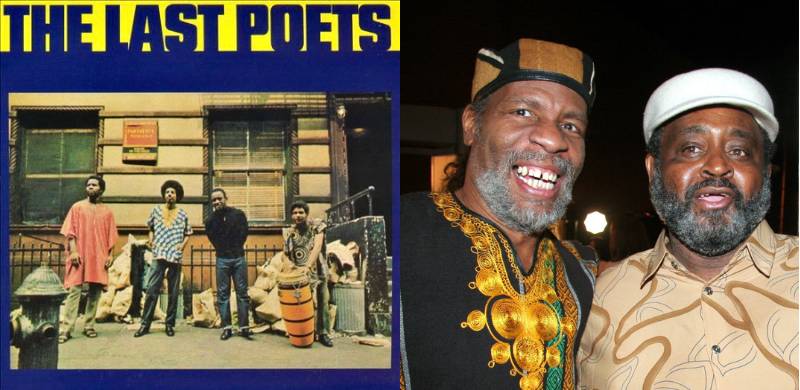
Most people don't immediately think 'Islam' when they hear hip-hop. Usually, our minds tend to think there is no correlation between music and religion, but in reality Islam and hip-hop have a fascinating shared history that is worth taking a look into. On the occasion of national hip-hop day in the US yesterday, a user by the name of Bayt Al Fann shared a riveting thread exploring the connection between Islam and hip-hop, and you do not want to miss this.
https://twitter.com/BaytAlFann/status/1557662687257034752
To start off with, Al Fann prefaces his thread by saying that poetry culture was very prevalent amongst the Arabs, and poetic battles weren't uncommon. In fact, the Quran literally has a verse called Ash-Shu'ara, or 'The Poets' which talks about the poets and the oral tradition in the region at the time.
He says that the Prophet Muhammad (PBUH) was also a fan of the poetic tradition, and in fact would assign poets to challenge non-Muslim poets who were skeptical about the message of Islam. Similarly, in the Quran itself, Allah challenges the non-believers to write a better text than one that was written by God.
https://twitter.com/BaytAlFann/status/1557662783843491841
He then mentions poetry battles that took place throughout South Asia from the 11th century onwards, and how it directly ties into early hip-hop culture where artists would experiment with spoken word & delivery through lyrical battles. He says that the Quran is considered the highest form of communication and linguistic mastery is something that unites Islam and hip-hop.
Next come The Last Poets, a group of African-American and Latino poets in 1968 who are considered by many to be the precursors of hip-hop music, as this group of seven men redefined spoken word. Two of its members were Muslims, and their identity as both Black men who were also Muslims seeped into the poetry they wrote.
https://twitter.com/BaytAlFann/status/1557662814998765573
Because of the time when hip-hop emerged, it became known as a way for people to talk about social issues that Islam has historically regarded as well, such as inequity, self-determination and the need for community. In fact, many of the genre's pioneers had connected themselves to an Islamic ideology. Many rap songs incorporate Islamic verses and prayers, such as Yasiin Bey's (Mos Def) 1999 album Black on Both Sides, which started with the words 'Bismillah ir Rahman ir Raheem' or the Black Eyed Peas song 'Someday' which includes the line 'I'm 'bout to get it, baby, Inshallah'.
https://twitter.com/BaytAlFann/status/1557662891033198593
He also gives a shoutout to Pakistani rapper Eva B, who raps in a niqab.
https://twitter.com/BaytAlFann/status/1557662971010207744
In fact, the commonality between Islam and hip-hop transcends mere music, and actually becomes a part of the entire cultural aesthetic in the shape of calligraffiti —which is a mixture of calligraphy and graffiti, which has traditionally been associated with the hip-hop as a visual manifestation of it.
https://twitter.com/BaytAlFann/status/1557663080787722240
https://twitter.com/BaytAlFann/status/1557662687257034752
To start off with, Al Fann prefaces his thread by saying that poetry culture was very prevalent amongst the Arabs, and poetic battles weren't uncommon. In fact, the Quran literally has a verse called Ash-Shu'ara, or 'The Poets' which talks about the poets and the oral tradition in the region at the time.
He says that the Prophet Muhammad (PBUH) was also a fan of the poetic tradition, and in fact would assign poets to challenge non-Muslim poets who were skeptical about the message of Islam. Similarly, in the Quran itself, Allah challenges the non-believers to write a better text than one that was written by God.
https://twitter.com/BaytAlFann/status/1557662783843491841
He then mentions poetry battles that took place throughout South Asia from the 11th century onwards, and how it directly ties into early hip-hop culture where artists would experiment with spoken word & delivery through lyrical battles. He says that the Quran is considered the highest form of communication and linguistic mastery is something that unites Islam and hip-hop.
Next come The Last Poets, a group of African-American and Latino poets in 1968 who are considered by many to be the precursors of hip-hop music, as this group of seven men redefined spoken word. Two of its members were Muslims, and their identity as both Black men who were also Muslims seeped into the poetry they wrote.
https://twitter.com/BaytAlFann/status/1557662814998765573
Because of the time when hip-hop emerged, it became known as a way for people to talk about social issues that Islam has historically regarded as well, such as inequity, self-determination and the need for community. In fact, many of the genre's pioneers had connected themselves to an Islamic ideology. Many rap songs incorporate Islamic verses and prayers, such as Yasiin Bey's (Mos Def) 1999 album Black on Both Sides, which started with the words 'Bismillah ir Rahman ir Raheem' or the Black Eyed Peas song 'Someday' which includes the line 'I'm 'bout to get it, baby, Inshallah'.
https://twitter.com/BaytAlFann/status/1557662891033198593
He also gives a shoutout to Pakistani rapper Eva B, who raps in a niqab.
https://twitter.com/BaytAlFann/status/1557662971010207744
In fact, the commonality between Islam and hip-hop transcends mere music, and actually becomes a part of the entire cultural aesthetic in the shape of calligraffiti —which is a mixture of calligraphy and graffiti, which has traditionally been associated with the hip-hop as a visual manifestation of it.
https://twitter.com/BaytAlFann/status/1557663080787722240

